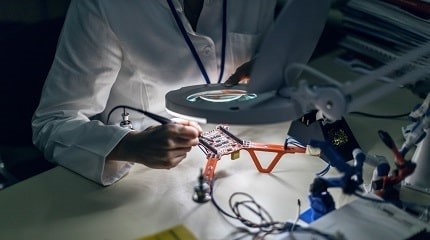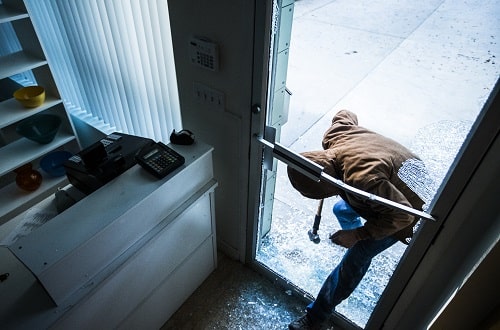New micro robots will be built to radically improve safety by inspecting in Britain’s most hazardous workplaces including nuclear power sites, as well as repairing Britain’s road network, under a £19.6 million government investment strategy, it has been announced.
News
Plans to build micro robots for projects announced
New micro robots will be built to radically improve safety by inspecting in Britain’s most hazardous workplaces including nuclear power sites, as well as repairing Britain’s road network, under a £19.6 million government investment strategy, it has been announced.
Scientists from four British universities will use £7 million government investment to develop 1 cm-long robotic devices that use sensors and navigation systems to find and mend cracks in pipes in the UK’s huge underground pipe network.
A further 14 projects have been awarded £19.6 million investment through the Industrial Strategy Challenge Fund (ISCF), which will see robots sent to hazardous workplaces such as offshore windfarms and nuclear decommissioning facilities.
Researchers will test new technologies, such as the use of artificial intelligence (AI) software on satellites in orbit to detect when repairs are needed, and drones for oil pipeline monitoring.
UK Research and Innovation (UKRI) chief executive, Professor Sir Mark Walport said: “The projects announced demonstrate how robots and artificial intelligence will revolutionise the way we carry out complex and dangerous tasks, from maintaining offshore wind farms to decommissioning nuclear power facilities.
“They also illustrate the leading role that the UK’s innovators are playing in developing these new technologies, which will improve safety and boost productivity and efficiency.”

HSE chair Martin Temple added: “As a regulator we want to encourage industry to think about how technologies such as robotics and AI can be used to manage risk in the workplace, safeguarding workers both now and in the future world of work.”
A joint statement made on 31 December 2018 from the Department for Business, Energy & Industrial Strategy, HSE, Innovate UK and UKRI, says that the work will also cut disruption caused by the 1.5 million road excavations that take place every year.
Science minister Chris Skidmore added: “While for now we can only dream of a world without roadworks disrupting our lives, these pipe-repairing robots herald the start of technology that could make that dream a reality in the future
From deploying robots in our pipe network to cutting down traffic delays, to using robots in workplaces to keep people safer, this new technology could change the world we live in for the better.”
NEWS

Calls for more mental health support for NHS workers grow amid burnout fears
By Kerry Reals on 12 April 2024
Calls for the reinstatement of UK government funding for the provision of mental health and wellbeing hubs for NHS workers have amplified, as a new survey by the UNISON union warns that the threat of burnout could compound healthcare staff shortages.

Assault of retail workers to become a standalone crime in UK shoplifting crackdown
By Kerry Reals on 10 April 2024
Retailers have welcomed a UK government decision to make assaulting a shop worker a standalone criminal office in England and Wales, but civil liberties groups have criticised plans to ramp up the use of facial recognition technology in town centres to help catch shoplifters.

Teaching union calls for HSE to include suicides in work-related deaths figures
By Kerry Reals on 03 April 2024
Teaching union NASUWT has reiterated calls for suicides to be included in the Health and Safety Executive’s (HSE’s) annual figures on work-related deaths, and is calling for suicide prevention training to be provided for all school leaders.


